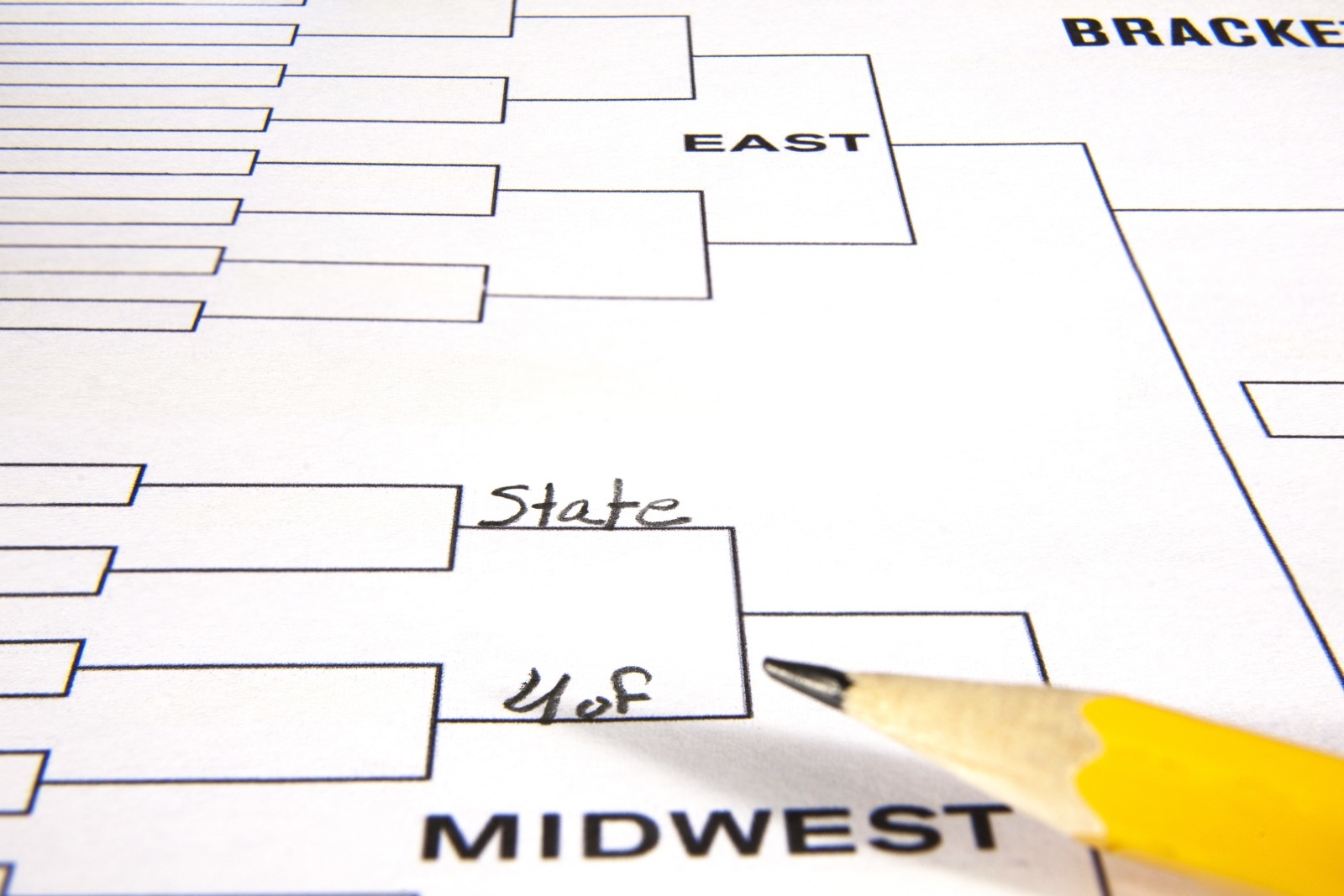
A NCAA basketball brackets pool is a great way for employees to bond. It can also be a great way for a careless boss to get in trouble.
Reprinted Courtesy Chas Rampenthal, Esq.
The NCAA basketball tournament, better known as March Madness, is here again. Let’s face it, your company’s productivity is out the window until the clock ticks down in the final game on April 2nd.
Inevitably, someone in your office will create a betting pool and ask colleagues to fill out a bracket predicting the winners of each matchup in the tournament. It’s fun, and it raises camaraderie, since even casual sports fans like to get in on the action. And it’s easy: The internet is full of sites that allow brackets “commissioners” to track the predictions their office mates have made and to calculate how much should be paid to the winning bettor.
But wait a minute. Isn’t that gambling? And is that even legal?
The short answers are yes, it is gambling, and yes, it’s legal, provided your office pool is for bragging rights only. Once you introduce money into the equation, and offer a cash prize to the winner, the waters quickly get muddied.
Here is a quick two-pointer, if you will, on how to keep your office pool on the right side of the law:
Even “social” gambling may be illegal where you live. Check your state law.
At my last count, about 20 states do not have an exception for what is known as “social gambling.” The general concept is that playing for money can be legal if it is in a purely social context. To fit within the “social context,” a pool must be structured so that nobody involved can make or earn anything other than as a player in the game. Any game that has a “commissioner fee” would knock you right out of the exception, placing your game in legal hot water.
In Alaska, for instance, the fact that you gambled is still a crime, but if you can show that it was merely social gambling, you have an affirmative defense. In Florida, the “penny-ante” exception applies only if total winnings are less than $10 per round. In Iowa, you have to be “socially acquainted” with the person you are gambling with, and no participant can win or lose more than $50 in any 24-hour period. In North Dakota, betting under $25 is legal, but once you go over $500, it’s a misdemeanor crime.
So make sure to search your particular state’s social gambling laws, and when in doubt, leave the money out of it.
Wherever you live, play by these prudent rules
-
Let the pool’s organizer know that he or she cannot take a cut. Emphasize that every dime collected has to be distributed according to the rules for the pool;
-
Make sure that all the players are of legal age – usually over 21;
-
Set up the pool so everyone is on equal terms – even the commissioner. That way, everyone’s chances of winning (or losing) are the same. If it isn’t fair, it probably isn’t legal;
-
Keep it small. If it is truly the “office” pool, it should be limited to co-workers only;
-
Keep it off the web. Even a temporary website can be classified as online betting. The pros know this, which is why all of the companies that help you set up pools online tell you that they can’t be used for gambling;
-
Tell winners to report gambling winnings to IRS, especially if the prize is substantial; and
-
Don’t do this too often. An office pool for the annual NCAA tournament is one thing. But if your office also has a pool for the Oscars, the Grammys, the US Open, the World Cup, the Commonwealth Cricket Games, and the Intergalactic Quidditch Championships, the more likely you are to get attention you don’t want.
In sum, moderation is your best defense: Too much money, too many pools, and too many bettors all raise the risk. Knock yourself out rooting for your alma mater’s or a Cinderella team this March. But don’t go mad over it.
BOSTON +1.617.938.3928
NEW YORK +1.212.500.1316
LOS ANGELES +1.310.209.8236
TOLL FREE +1.866.677.NDVR (6387)



